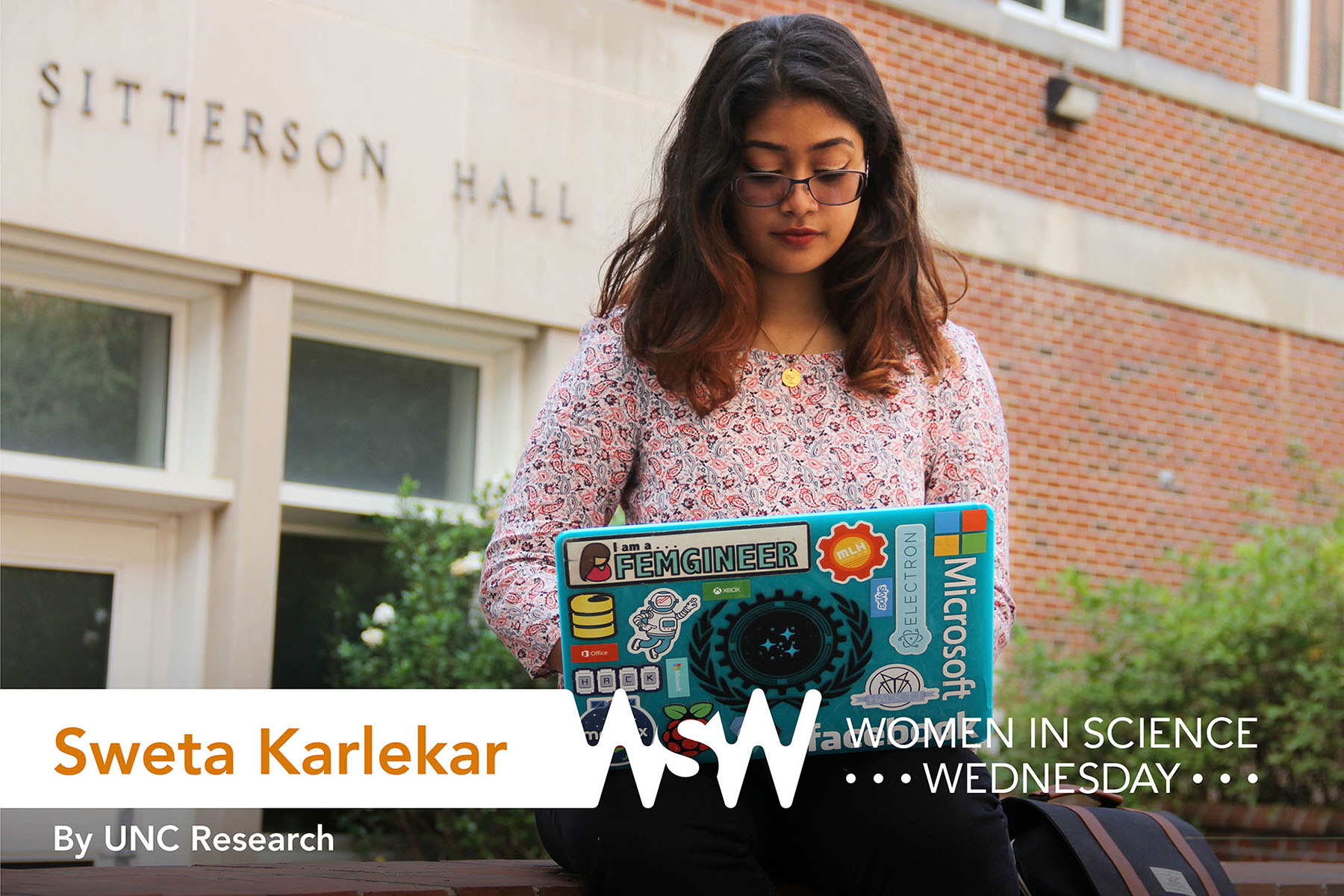UNC sophomore researching the use of AI to identify early signs of Alzheimer’s and dementia
Sophomore Sweta Karlekar is an undergraduate researcher majoring in computer science within the UNC College of Arts and Sciences. She is also a Chancellor's Science Scholar. Her research focuses on building an artificial intelligence program that can automatically identify early signs of Alzheimer's disease and dementia through a person's speech.

When you were a child, what was your response to this question: "What do you want to be when you grow up?"
I always wanted to be a doctor. My first chapter books were encyclopedias, and I used to walk around with science trivia books in my backpack. I thought I would hate computer science, and never gave it a fair shot until high school. Freshman year, I took my first computer science class and fell in love. I haven't looked back since.
Describe your research in five words.
“Artificial intelligence helps you remember.”
Share the pivotal moment in your life that helped you choose research as a career path.
My junior year of high school, I interned with the Geospatial Research Laboratory, a research division of the Army Corps of Engineers. My first week there, my mentor assigned me to my own project and told me my work would be implemented in the solution his team was delivering the following month. The stakes were high and I asked him exactly how he wanted me to solve the problem assigned. "Find a way," he said. I was baffled. I had been so used to people telling me exactly how to solve problems — but I quickly grew to realize that I felt at home when I was innovating and inventing. I love the freedom and creativity involved in research, and wouldn't give it up for any other career path.

What's an interesting/funny story from your time doing research?
Sometimes, the answer comes to you at the strangest of times! Freshman year at UNC, I had a bug in my code and I had no idea how to fix it for almost a week. It ended up coming to me in a dream, and I woke up at 3 a.m. that morning to code it. My solution actually worked!
What advice would you give to up-and-coming female researchers in your field?
Never lose faith in yourself or your passion. Ask yourself why you're interested in computer science. What about the field excites you? Hold onto that excitement through all the hardships you face. There will definitely be times others question you, and times you question yourself. Discrimination in the workplace is real. Micro-aggressions are real. Imposter syndrome is real. But never forget that your passion for computer science is real. It's your passion for your work that makes all the challenges and hard work worth the effort.
Originally published at endeavors - Women in Science Wednesdays.